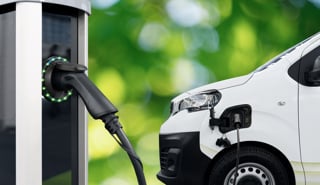Just 10% of employees value company cars as a benefit, according to a survey conducted by Wade Macdonald.
The HR recruitment firm said the lack of support for the benefit was heavily influenced by attitudes to remote working, economic uncertainty and sustainability.
In its survey of 850 HR professionals in non-management, management, senior management and directorate roles, the firm also found a significant divergence between how many employees can access a company car and how frequently this benefit is actually used.
An average of 10% of employees across all levels value access to a company car as a useful benefit in their employment package. This changes slightly when analysing what people think at different managerial levels.
Just over 5% of non-management staff see a company car as an important benefit, with the same proportion of respondents having access to one.
At management and senior management, the benefit was valued by 10% of respondents and at director level, one-in-six – some 15% – considered the company car an important part of their package.
Access to a company car for the two upper management levels was significantly higher than access to a car at lower levels. Just over a third (34%) of senior managers have access to a company car and 44% are director level and above.
Far fewer use the benefit, though, even if they have access to it, according to Wade Macdonald’s research. Only 9% of senior managers and 8% of directors actually use the company car they are entitled to.
Chris Goulding, managing director of Wade Macdonald, believes changes in working practices, economic uncertainty, and employee values may be reasons for the decline in popularity of the company car benefit.
“Remote working has certainly had an impact on organisational management since the Covid-19 pandemic,” he explained. “Our previous research showed that only 10% of people now work in the office full-time.
“With less of a requirement to travel to and from work every day, it makes sense that people no longer see having a company car as a benefit that will improve their working life.
“The rise of remote working can also be attributed to the costs of commuting. Rising fuel prices have impacted many commuters, and so having another tank to fill may be seen as more of a drawback than a benefit.
“With less certainty around the economy in general, cutting costs on benefits that employees do not utilise will allow companies to allocate more resources into areas they will see value in.”
Goulding claims that sustainability also has a role to play. “There’s no doubt employees will be factoring sustainability into their decision-making on what benefits they use,” he said.
“Our research has shown that 54% of HR leaders are integrating sustainability into learning and development initiatives.”
More electric vehicles (EVs) are joining company car fleet, but Goulding claimed that “recent tax hikes” and other economic pressures mean companies are having to “ditch salary sacrifice schemes” that helped employees purchase an EV.
However, Wade Macdonald’s research appears contrary to the reported growth in salary sacrifice schemes for EVs and the Treasury’s decision to keep benefit-in-kind (BIK) tax low for plug-in vehicles.
The most recent data published by HMRC showed that the number of employees paying company car tax has stayed the same year-on-year, ending several years of decline.
The BIK statistics revealed that there were 720,000 employees paying company car tax in 2021/22, exactly the same as reported for the previous tax year (2020/21).
The number of company car drivers had been steadily declining since 2015/16, when there were 960,000 employees paying BIK on a company vehicle.
HMRC data published last year, for example, revealed 80,000 fewer employees paying company car tax year-on-year.
The growing popularity of salary sacrifice schemes for cars, which attract BIK, will have helped halt that decline.
In a recent Fleet News opinion piece, Thom Groot, CEO of The Electric Car Scheme, said: “The increasing popularity of electric cars in recent years has sparked a revival of company cars as a desirable perk for employees.
“In the past decade, the number of company cars had steadily declined due to the removal of tax incentives and cost-cutting measures by companies. Over a quarter of company cars on the road in 2016 have since disappeared.
“However, the emergence of electric cars has led to a significant shift in the company car landscape.”
More than a third of companies (36%) have introduced salary sacrifice, according to the latest Fleet200 Strategy Network (FSN) survey.
Of those, 32% have used it to replace their company car scheme, driven by sustainability, cost and employee benefits.
Furthermore, almost half (40%) of some 5,000 employees, surveyed by Fleet Evolution earlier this year, said that salary sacrifice was the most important benefit. This was followed by pensions (37%) and flexible working (9%).
More than half (55%) of employees also said that they would not have opted for an electric car had it not been provided through a salary sacrifice car scheme.






















Login to comment
Comments
No comments have been made yet.